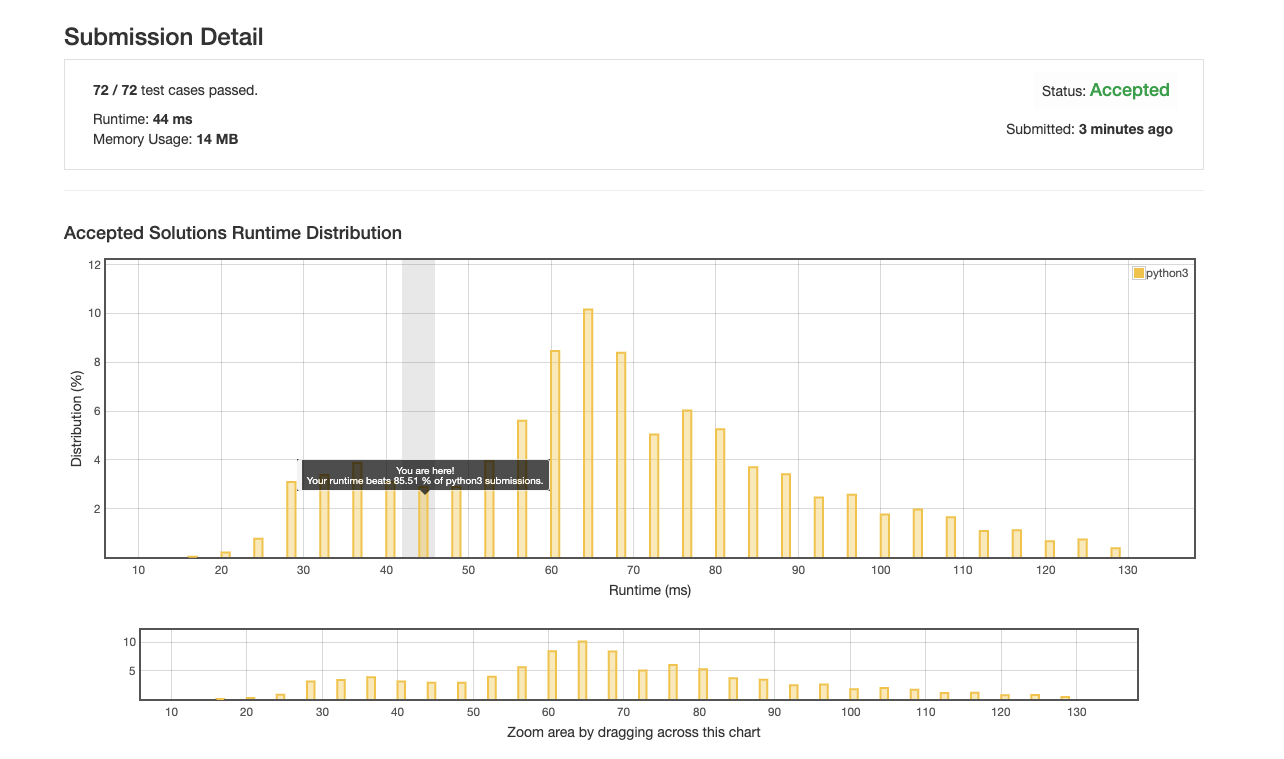| 일 | 월 | 화 | 수 | 목 | 금 | 토 |
|---|---|---|---|---|---|---|
| 1 | ||||||
| 2 | 3 | 4 | 5 | 6 | 7 | 8 |
| 9 | 10 | 11 | 12 | 13 | 14 | 15 |
| 16 | 17 | 18 | 19 | 20 | 21 | 22 |
| 23 | 24 | 25 | 26 | 27 | 28 | 29 |
| 30 |
- 프로그래머스 파이썬
- 파이썬
- 백준
- 우분투
- 코로나19
- 자연어처리
- gs25
- Docker
- github
- Real or Not? NLP with Disaster Tweets
- 프로그래머스
- PYTHON
- 데이콘
- 금융문자분석경진대회
- 편스토랑
- programmers
- AI 경진대회
- ubuntu
- Kaggle
- 맥북
- 편스토랑 우승상품
- SW Expert Academy
- Baekjoon
- leetcode
- Git
- hackerrank
- 더현대서울 맛집
- dacon
- ChatGPT
- 캐치카페
- Today
- Total
솜씨좋은장씨
[leetCode] 657. Robot Return to Origin (Python) 본문

There is a robot starting at position (0, 0), the origin, on a 2D plane. Given a sequence of its moves, judge if this robot ends up at (0, 0) after it completes its moves.
The move sequence is represented by a string, and the character moves[i] represents its ith move. Valid moves are R (right), L (left), U (up), and D (down). If the robot returns to the origin after it finishes all of its moves, return true. Otherwise, return false.
Note: The way that the robot is "facing" is irrelevant. "R" will always make the robot move to the right once, "L" will always make it move left, etc. Also, assume that the magnitude of the robot's movement is the same for each move.
Example 1:
Input: moves = "UD"
Output: true
Explanation: The robot moves up once, and then down once. All moves have the same magnitude, so it ended up at the origin where it started. Therefore, we return true.Example 2:
Input: moves = "LL"
Output: false
Explanation: The robot moves left twice. It ends up two "moves" to the left of the origin. We return false because it is not at the origin at the end of its moves.Example 3:
Input: moves = "RRDD"
Output: falseExample 4:
Input: moves = "LDRRLRUULR"
Output: false
Constraints:
- 1 <= moves.length <= 2 * 104
- moves only contains the characters 'U', 'D', 'L' and 'R'.
Solution
from collections import Counter
class Solution:
def judgeCircle(self, moves: str) -> bool:
cnt = dict(Counter(moves))
cnt_keys = list(cnt.keys())
pairs = [ {"L", "R"}, {"U", "D"}, {"L", "R", "U", "D"} ]
if set(cnt_keys) not in pairs:
return False
else:
if set(cnt_keys) == pairs[0]:
if cnt['L'] != cnt['R']:
return False
elif set(cnt_keys) == pairs[1]:
if cnt['U'] != cnt['D']:
return False
elif set(cnt_keys) == pairs[2]:
if (cnt['L'] != cnt['R']) or (cnt['U'] != cnt['D']):
return False
return True


SOMJANG/CODINGTEST_PRACTICE
1일 1문제 since 2020.02.07. Contribute to SOMJANG/CODINGTEST_PRACTICE development by creating an account on GitHub.
github.com
'Programming > 코딩 1일 1문제' 카테고리의 다른 글
| [leetCode] 686. Repeated String Match (Python) (0) | 2020.09.24 |
|---|---|
| [leetCode] 1207. Unique Number of Occurrences (Python) (0) | 2020.09.23 |
| [leetCode] 703. Kth Largest Element in a Stream (Python) (0) | 2020.09.21 |
| [leetCode] 1189. Maximum Number of Balloons (Python) (0) | 2020.09.20 |
| [leetCode] 645. Set Mismatch (Python) (0) | 2020.09.19 |





